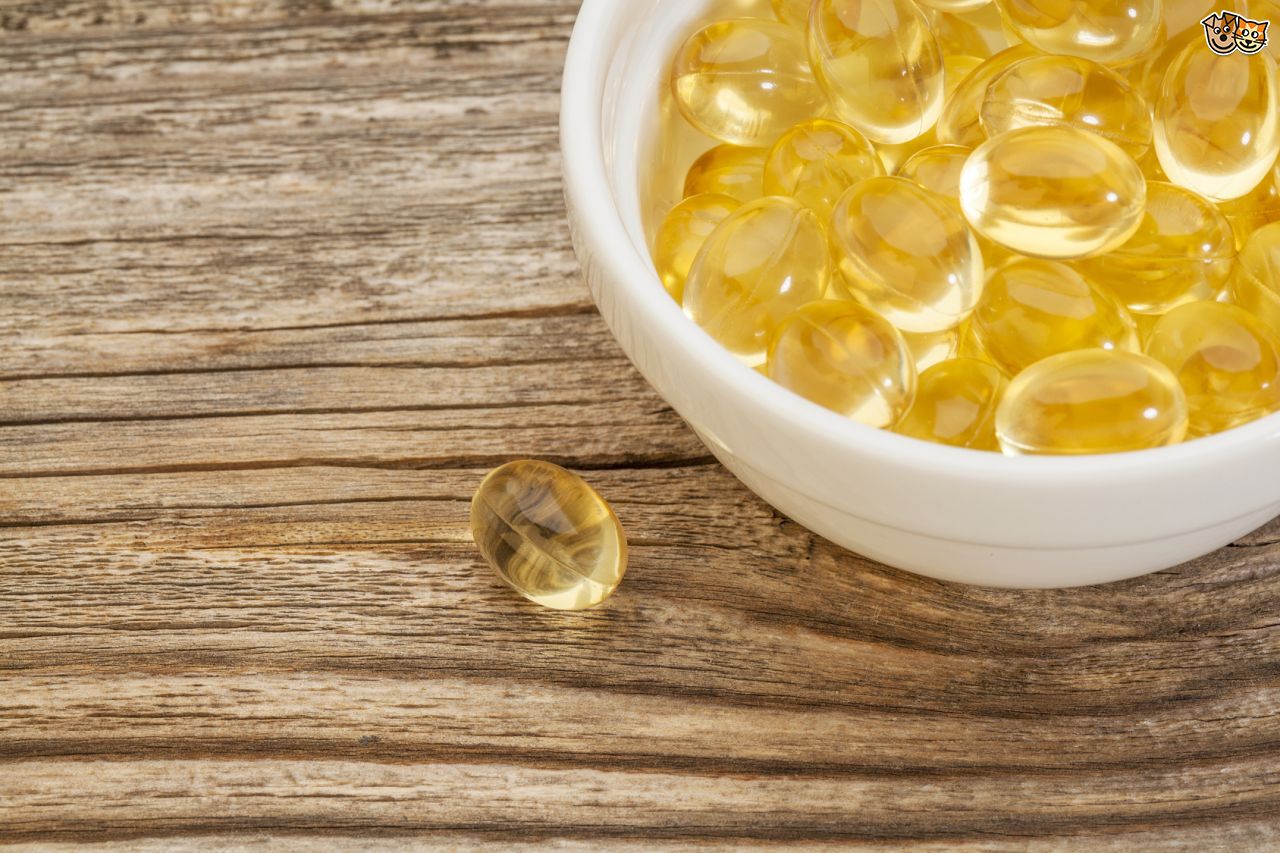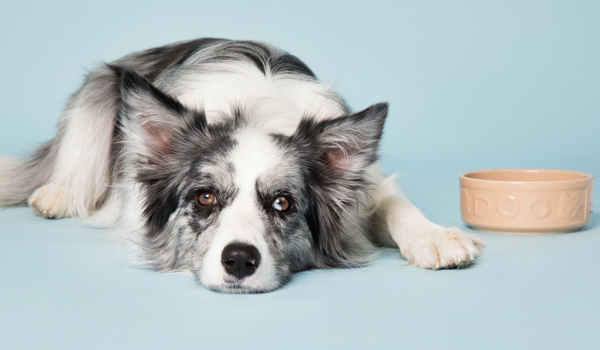We all know that probiotics can be healthy for humans, but what about for our canine companions? Can probiotics also be beneficial for dogs? Are there certain probiotics that are better for dogs? If you’ve had these and other questions about probiotics for dogs, you’ve come to the right place. We’ve done the research to help answer these and other questions about probiotics for dogs.
Connect with a verified veterinarian in minutes. Licensed vets are available 24/7 to answer your questions. No need to worry about your furry family member.
What are Probiotics for dogs?
If you’ve eaten yogurt, then you’ve had probiotics. OK, but what are they? Probiotics are beneficial gut bacteria that offer many health benefits when eaten. These are living microorganisms that are actually bacteria and yeasts. Examples of foods containing probiotics include:
- Yogurt
- Kefir
- Sauerkraut
- Tempeh
- Kimchi
However, you can also take probiotics as a supplement. Pet parents and their dogs both benefit from probiotics. What are the benefits provided by probiotics? These include:
- Aiding digestion
- Modulation of the immune system (such as boosting the immune system, reducing allergy symptoms, etc.)
They work to keep harmful bacteria, such as E. coli, Salmonella and Clostridium perfringens under control, as well as treating certain health issues such as diarrhea, irritable bowel and intestinal inflammation. Probiotics can also prevent urinary tract infections and even reduce allergic reactions.
These are pretty powerful microorganisms that are important for us and our dog’s health.
There are some strains of probiotics that are especially beneficial for dogs including:
- Lactobacillus acidophilus: can improve bowel management
- Lactobacillus rhamnosus: is great to treat diarrhea or even to prevent this condition
- Bacillus coagulans: also helps with preventing diarrhea
- Enterococcus faecium: to help with digestion
- Bifidobacterium animalis: can also help treat diarrhea in dogs
Why Should my Dog Take Probiotics?
As noted earlier, probiotics can be very beneficial for dogs. Some of the benefits of your dog having probiotics include:
1). Relief of digestive issues: if your pup is sick or maybe feeling stressed, this can cause an imbalance of the gut microbes, leading to an over abundance of bad microorganisms. This can cause issues such as gas, diarrhea, cramping, etc. Probiotics can help restore your dog’s gut microbiome, so he can feel better. They can even help shorten episodes of diarrhea from 7 to 4 days.
2). Relieve side effects of antibiotics: medications that are prescribed for infections, such as antibiotics, work to kill off good and bad bacteria together. This can lead to intestinal and digestive issues, including diarrhea. Ask your vet if giving your fur baby probiotics would be helpful to avoid this issue while he’s being treated with antibiotics.
3). Chronic digestive issues: just like us, our canine companions can suffer from irritable bowel issues. However, probiotics can relieve this condition, making your dog feel better and avoid the problems caused by this condition.
4). Help weakened immune systems: if you have an older dog, or a dog that suffers from a chronic health condition, probiotics can work to strengthen your pup’s immune system with the addition of good bacteria to his digestive system. This works to increase your dog’s immunity and improves his health overall. This is also helpful for senior dogs who may suffer from weakened immune systems due to their age.
5). Improve allergy symptoms: giving your fur baby probiotics, if he has allergies, can improve his symptoms, especially in skin allergies.
6). Improved skin, coat and breath: probiotics can also promote a healthier coat, skin and breath in dogs. Your canine companion will look and feel better overall.
7). Regulate moods and behaviors: in other words, your dog will have a better mood and act better when taking probiotics.
8). Regulate appetite and weight: probiotics can also work to control appetite and regulate weight. So, if your dog’s overweight, then it might be a good to ask the vet if probiotics could help him lose the extra weight.

Review symptoms, medications & behavior to keep your pets healthy with a Vet Online in just minutes.
Ask a Vet Live NowDog Probiotic Side Effects
While probiotics usually don’t cause side effects when given in the correct amounts, they can cause vomiting and diarrhea. To keep your pup from suffering these unpleasant side effects, your vet may advise giving your fur baby a lower dose to start, and then increasing up to the recommended dosage for your dog.
Before giving your dog probiotics, be sure to ask the vet to make sure they are appropriate for your dog. And ask for guidance on the correct dosage for your pup, too.
Can a Dog Overdose on Probiotics?
If your dog has an overdose of probiotics, he could suffer from digestive issues such as nausea, vomiting, and bad diarrhea. So, before giving your dog probiotics, it’s a good idea to ask your vet about the correct dose and type to give your dog in order to avoid possible overdose and health issues.
How Long Does it Take for Probiotics to Work in Dogs?
These friendly gut bacteria can definitely be helpful. In order to determine if they’re helping your pup or not, it’s recommended that dogs take the supplement for a month or so. However, if the probiotics are causing unwanted side effects, they should be stopped. If you have any questions about how long your dog should take probiotics, then be sure to ask your vet for guidance.
Human Probiotics for Dogs
Can dogs take human probiotics? Studies have not shown that human probiotics can harm a dog; however, most veterinarians advise pet parents to give their fur babies probiotics made especially for dogs. Dogs and humans have very different digestive systems; human probiotics may simply not help your dog, even if they don’t harm him. As a result, it’s best to use products especially created for dogs.
Other Considerations for Doggie Probiotics
Here are some other considerations to keep in mind for probiotic canine supplements.
Look for products that include live probiotics only. Anything else is just a sales pitch and won’t help your dog at all.
- Be wary of dried dog foods that claim the contain probiotics. The reason is that if the food is dry, it’s more than likely been heated. Heat kills bacteria and other microorganisms, including those beneficial to your dog.
- Some probiotics will need to be refrigerated, so be sure to read the package and keep it refrigerated if needed. Also avoid giving your fur baby probiotics that have gone past their expiration date.
- Always give probiotics with your dog’s meals. You can choose to give the supplement after his meal or in between his meals.
- Always follow the label instructions when it comes to dosing.
- When first giving your pup probiotics, watch for any possible side effects, etc. You want to make sure he’s not being overdosed, as this can cause digestive problems.
Best Probiotic for Dogs with Allergies
What about probiotics for dogs that have allergies? Are there some probiotics that work better for dogs with allergic conditions? Studies have shown that dogs with allergies may benefit from being treated with probiotics. Improvements in some dogs’ allergies can be quite fast. These friendly bacteria can help allergies of all types, including skin allergies in dogs. If you’re looking for a good probiotic to help with your dog’s allergies, then check out these products:
Zesty Paws Aller-Immune Bites: these soft chews support the immune system, histamine and digestive track in dogs with skin, seasonal and environmental allergies. The chews contain five strains of probiotics proven to aid a dog’s digestion and immune system. Along with probiotics, the Zest Paws soft chew are enhanced with EpriCor, which contains vitamins, protein, fiber and antioxidants that are proven to help support a dog’s natural immune defenses, to keep him healthy. The treats also include wild Alaskan salmon, filled with Omega 3 fatty acids, and other natural ingredients such as colostrum.
PetHonesty Allergy Relief Immunity Supplement: these chews help reduce allergy symptoms, improve your pup’s immune system and support healthy digestion and gut health. They include ingredients such as probiotics, colostrum, turmeric (to fight inflammation), Alaskan salmon oil (full of Omega 3s). These chews are free of wheat, corn, preservatives and GMOs. They work to soothe and calm allergies, while improving your fur baby’s gut health—all with natural, health ingredients.
Probiotics for Dogs by Deley Naturals: this supplement contains probiotics to help treat dog allergies, diarrhea, bad breath in dogs, constipation, gas, yeast overgrowth, hot spots and more. Made in the USA, this supplement works to restore your dog’s digestive health with a blend of 6 enzymes that improve the gut bacteria in his digestive system. It also works to boost your pup’s immune system, relieve allergies and more. Dogs love the chicken taste of the supplement, which contains no artificial colors or flavorings.
Best Overall Probiotics for Dogs
If you don’t need a specific probiotic supplement just to treat allergies, you can one of these products that have been determined some of the best available for dogs:
Fortiflora by Purina: this is a product that contains probiotics to help dogs and puppies that have dietary diarrhea. This safe and effective probiotic is a dog supplement that’s easy to administer to your dog’s regular dog food. It’s a powder that works to balance your dog’s digestive system. It contains a guaranteed level of live microorganisms to promote beneficial intestinal microflora. The formula also contains antioxidants and supports your fur baby’s immune system.
Pet Naturals of Vermont Daily Probiotic for Dogs: this daily probiotic supplement supports your dog’s gut environment. It helps with gas issues, bad breath and potty problems (including constipation and diarrhea). You’ll also notice your pup’s fur, skin and overall health improve while taking these supplements. This probiotic is free of corn, wheat and artificial ingredients. And the product is made in the USA.
As you can see, probiotics can have benefits for both healthy dogs and those that have certain medical conditions including allergies and digestive issues. Before giving any new supplement to your fur baby, always ask your vet for advice. They’ll be able to give you proper guidance on dosage, the best product for your dog, and more.
Connect with a verified veterinarian in minutes. Licensed vets are available 24/7 to answer your questions. No need to worry about your furry family member.

Julie
Julie is a graduate of the University of North Carolina, Wilmington, where she studied Animal science. Though contrary to the opinion of her parents she was meant to study pharmacy, but she was in love with animals especially cats. Julie currently works in an animal research institute (NGO) in California and loves spending quality time with her little cat. She has the passion for making research about animals, how they survive, their way of life among others and publishes it. Julie is also happily married with two kids.
Review symptoms, medications & behavior to keep your pets healthy with a Vet Online in just minutes.
Ask a Vet Live Now



